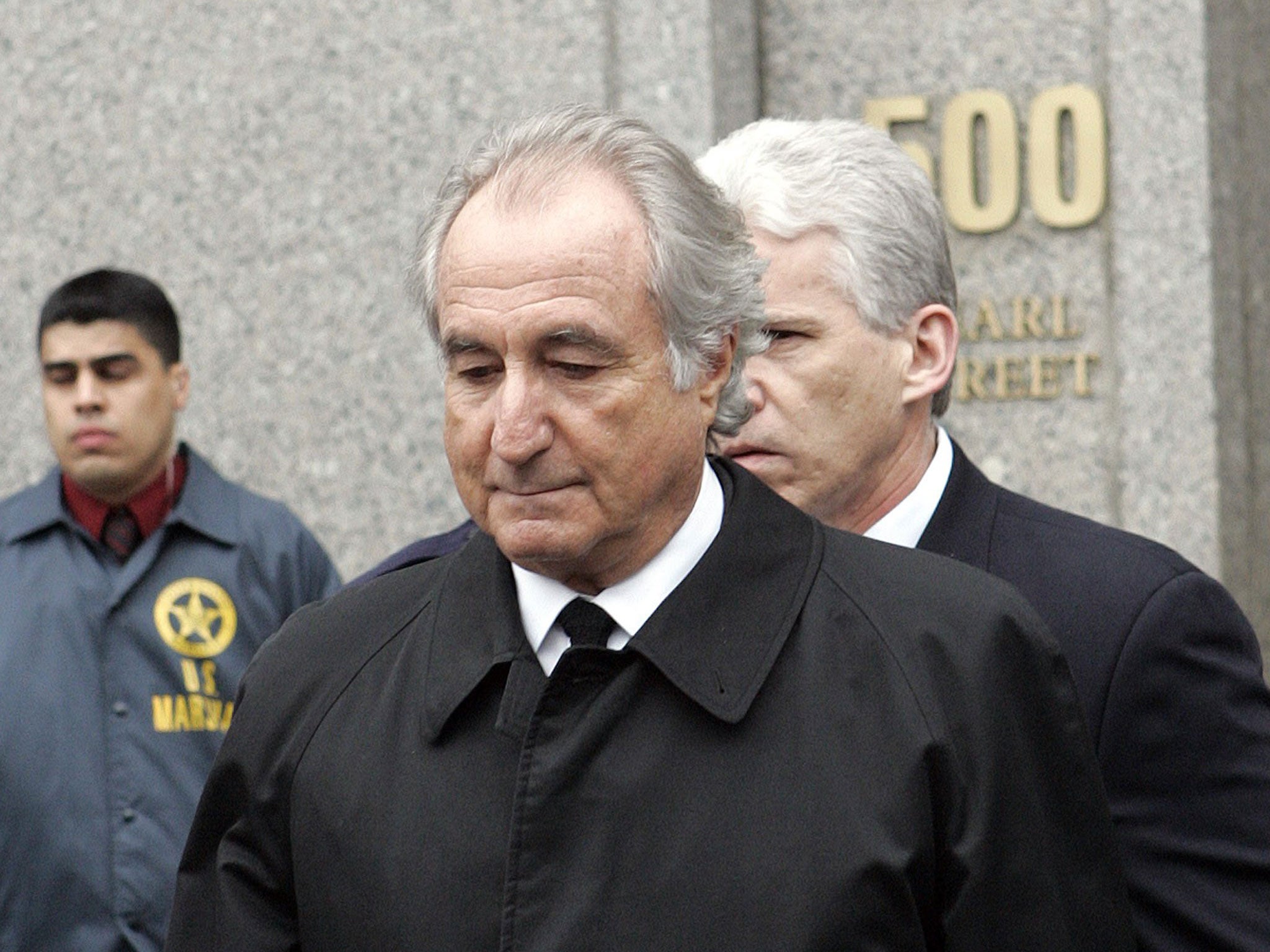Did Bernie Madoff act alone in Ponzi scheme fraud? Trial of five former employees begins

Your support helps us to tell the story
From reproductive rights to climate change to Big Tech, The Independent is on the ground when the story is developing. Whether it's investigating the financials of Elon Musk's pro-Trump PAC or producing our latest documentary, 'The A Word', which shines a light on the American women fighting for reproductive rights, we know how important it is to parse out the facts from the messaging.
At such a critical moment in US history, we need reporters on the ground. Your donation allows us to keep sending journalists to speak to both sides of the story.
The Independent is trusted by Americans across the entire political spectrum. And unlike many other quality news outlets, we choose not to lock Americans out of our reporting and analysis with paywalls. We believe quality journalism should be available to everyone, paid for by those who can afford it.
Your support makes all the difference.When Bernie Madoff’s Ponzi scheme first came to light, Wall Street was shocked by the scope of the fraud. At $65bn, it rendered even the most seasoned traders – people who are used to dealing with millions everyday –speechless. But there was more to come, for when the disgraced financier subsequently claimed that he had acted alone, everybody was left wondering how one man could have perpetrated such an immense fraud over so many years.
This week, prospectors will attempt to put such speculation to rest as they make the case that Madoff, who is serving a 150-year sentence for his misdeeds, did not act alone. In a trial that is due to begin on Tuesday and expected to conclude early next year, government lawyers will seek to convince a jury that the five defendants in the case, all ex-Madoff employees, helped the convicted fraudster mislead investors.
Prosecutors are expected to draw heavily on the testimony of Frank DiPascali, once a top lieutenant of Madoff’s, who has already pleaded guilty for his role in the fraudulent scheme. All five defendants in the case deny involvement in the Ponzi scheme.
In his testimony, Mr DiPascali, an ex-chief financial officer for Madoff and a 33-year veteran of his firm, is likely to back the prosecution’s claim that the five defendants worked with him to keep up the illusion of a thriving investment business when, in fact, they were running a Ponzi scheme. In a previous court hearing, he admitted that the enterprise was “all fake”.
To maintain the fiction, which ultimately led to billions of dollars worth of losses for clients, the five defendants are alleged to have carried out fraudulent tasks. Prosecutors claim that the ex-operations chief, Daniel Bonventre, helped cook the books, while the portfolio managers, Annette Bongiorno and Joann Crupi, made up trading records
Two computer programmers, Jerome O’Hara and George Perez, meanwhile, are alleged to have helped the firm mislead regulators.
Not so, say their lawyers, who in documents filed ahead of the case suggest their clients were themselves duped. In the case of the programmers, for example, lawyers have claimed they simply performed assigned tasks. Mr Perez’s lawyer, in an email to Reuters, said “the government has made a tragic mistake” by going after the programmer, who intends to show that “he never became a knowing participant in any of the crimes charged.”
The defence is also expected to question the reliability of the prosecution’s star witness, DiPascali, who could be seen to have an incentive in seeking to lessen his own penalty.
Prosecutors also claim that while the defendants were helping Madoff in his fraudulent enterprise, four of them were involved in “romantic” or “sexual” relationships, including possibly with Madoff himself.
Join our commenting forum
Join thought-provoking conversations, follow other Independent readers and see their replies
Comments